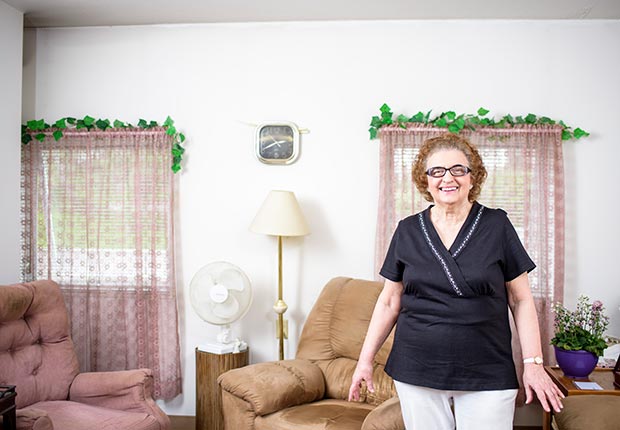AARP Hearing Center

By Kathryn Canavan
Florence Atkinson, 79, of Millvale, doesn’t fret about the cost of her prescriptions. She has diabetes, cancer and a leaky heart valve, but she also has a PACE card.
The cost of widely used prescription drugs jumped 81 percent from 2006 to 2013, according to a recent AARP report.
If your prescription costs are shooting up, Pennsylvania’s Pharmaceutical Assistance Contract for the Elderly may help. It picked up most of the tab for nearly 250,000 older Pennsylvanians last year.
Dubbed PACE, the program literally was a lifesaver for Atkinson.
“If I didn’t live in Pennsylvania and I didn’t have PACE, I probably would have been dead a long time ago,” the retired telephone operator said.
PACE, which debuted in 1984, is the gold standard of state prescription assistance programs for those 65 and older, said Ray Landis, AARP Pennsylvania’s advocacy manager. The program is funded with proceeds from the Pennsylvania Lottery.
PACE enrollees whose income is up to $14,500 for an individual or $17,700 for a couple pay just $9 for name-brand drugs and $6 for generics—and no premiums.
For individuals with incomes up to $23,500 or couples with up to $31,500, there is a related program called PACENET, added in 1997. Monthly premiums range from $21 to $35. Members pay $15 for name-brand drugs and $8 for generics.
Earn more than that? You may still be eligible.
“We recommend people call us and fill out an application, because sometimes people don’t understand what counts as income,” said Thomas M. Snedden, PACE director.
In calculating income, the state doesn’t count your assets, and you can usually deduct your Medicare Part B premiums.
Even if your income is over the limit, there may be a way to qualify. The PACE Patient Assistance Program Clearinghouse is open to those with incomes up to $100,000.
That program works with drug makers to provide free or lower- cost prescriptions to Pennsylvanians of all ages whose medications are very expensive. For more information, call 800-955-0989.
Completing the detailed applications that the drug companies require is a tall order, but PACE staffers will help. “It’s pretty daunting, but we have a team of people who are really good at that,” Snedden said. “We’ll do the applications for you.”
To apply for any of the programs, call the PACE office at 866-712-2060 toll-free.
You can also apply at your county Area Agency on Aging. By going there, you might find you are eligible for other programs, such as utility bill assistance, Snedden said.
Landis said AARP will urge state legislators to boost the income limits for the PACE program, last raised in 2003.
“There’s been a shift of lottery fund dollars away from programs that help people stay in their homes and communities,” he said. “We’re encouraged that the General Assembly ... is looking into increasing the income limits for PACENET to $31,000 for individuals and $41,000 for married couples.”
After almost 15 years with a PACE card, Atkinson said she’s glad she listened to her sister and signed up.
“PACE is no trouble at all, and it helps me with my prescriptions,” she said. “My friends from other states tell me they don’t have anything like what we have in Pennsylvania. They envy me because I live in Pennsylvania.”
Kathryn Canavan is a writer living in Wilmington, Del.































































